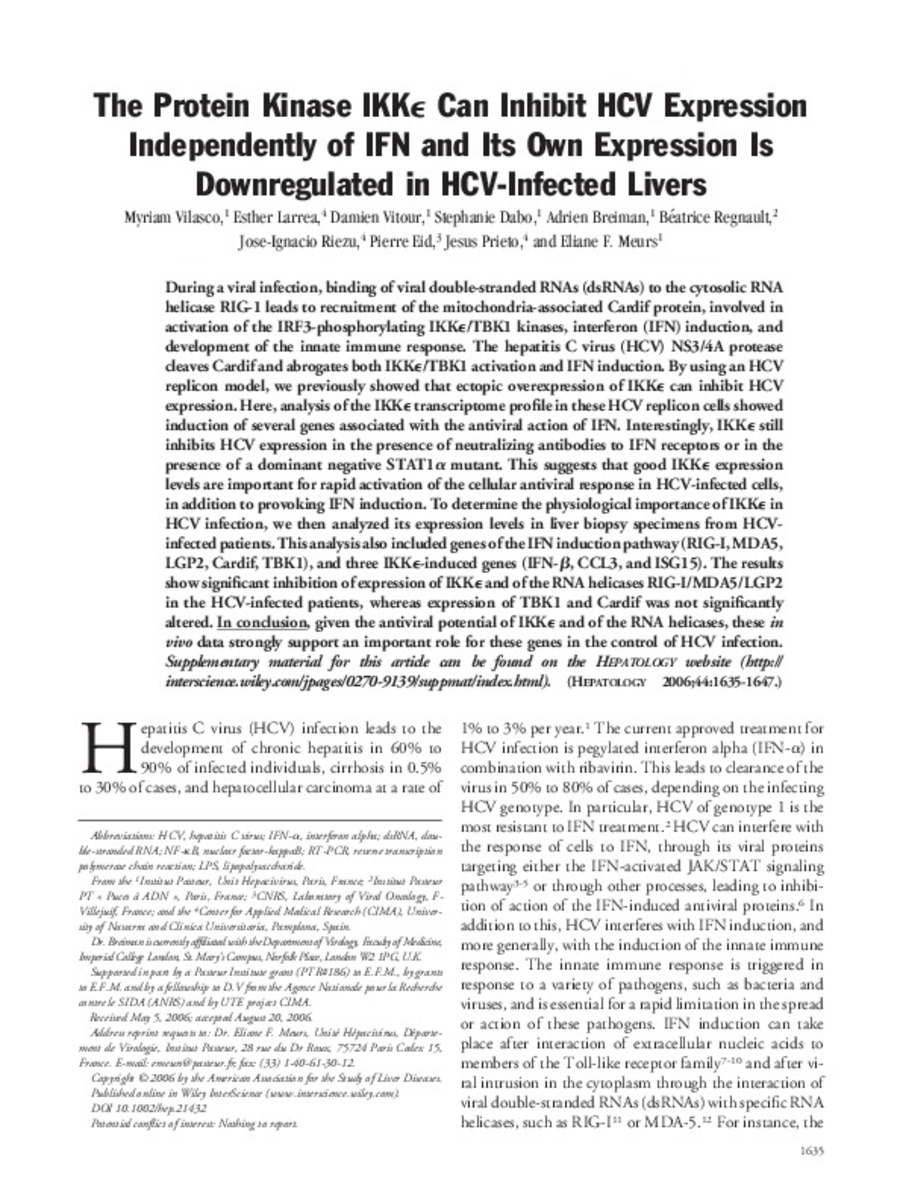The protein kinase IKKepsilon can inhibit HCV expression independently of IFN and its own expression is downregulated in HCV-infected livers
Keywords:
Hepacivirus/drug effects
Hepatitis C, Chronic/physiopathology
I-kappa B Kinase/biosynthesis
I-kappa B Kinase/physiology
Interferons/biosynthesis
Publisher:
Wiley-Blackwell
Citation:
Vilasco M, Larrea E, Vitour D, Dabo S, Breiman A, Regnault B, et al. The protein kinase IKKepsilon can inhibit HCV expression independently of IFN and its own expression is downregulated in HCV-infected livers. Hepatology 2006 Dec;44(6):1635-1647.
Statistics and impact
0 citas en

0 citas en

Items in Dadun are protected by copyright, with all rights reserved, unless otherwise indicated.









